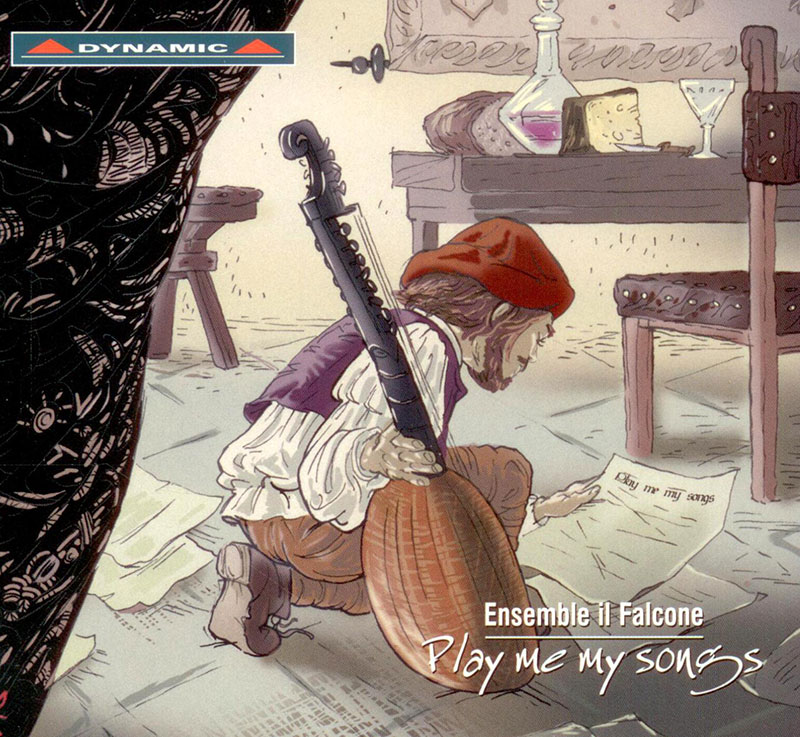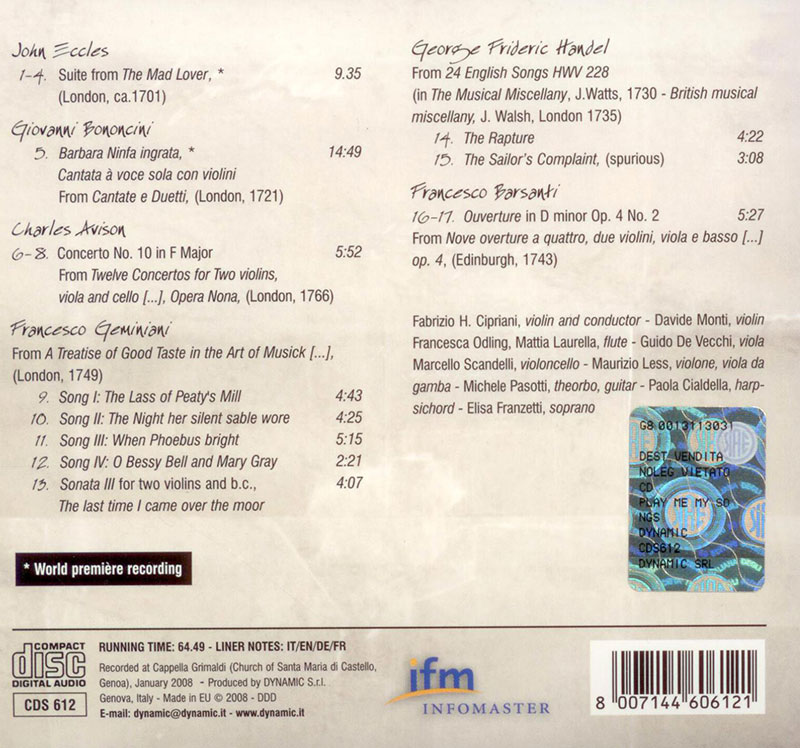Logowanie
OSTATNI taki wybór na świecie
Nancy Wilson, Peggy Lee, Bobby Darin, Julie London, Dinah Washington, Ella Fitzgerald, Lou Rawls
Diamond Voices of the Fifties - vol. 2
Tylko 1000 egzemplarzy!!!
DVORAK, BEETHOVEN, Boris Koutzen, Royal Classic Symphonica
Symfonie nr. 9 / Wellingtons Sieg Op.91
nowa seria: Nature and Music - nagranie w pełni analogowe
Petra Rosa, Eddie C.
Celebrating the art and spirit of music - vol. 3 - Pure
warm sophisticated voice...
Peggy Lee, Doris Day, Julie London, Dinah Shore, Dakota Station
Diamond Voices of the fifthies
Tylko 1000 egzemplarzy!!!
SAMPLER - STS DIGITAL, Buddy Tate, Milt Buckner, Walace Bishop
Jazz Masters - Legendary Jazz Recordings - v. 1
proszę pokazać mi drugą taką płytę na świecie!
Chesky! Niezmiennie perfekcyjny
Winylowy niezbędnik
ClearAudio
Double Matrix Professional - Sonic
najbardziej inteligentna i skuteczna pralka do płyt winylowych wszelkiego typu - całkowicie automatyczna
GEMINIANI, AVISON, ECCLES, HANDEL, Ensemble Il Falcone
Play me my songs

- Ensemble Il Falcone - orchestra
- GEMINIANI
- AVISON
- ECCLES
- HANDEL
The Ensemble "Il Falcone" was formed in 2000, as a result of the passion of a group of early music musicians united by friendship and respect. The members of the Ensemble had previously actively collaborated with artists and groups specializing in early music among the most prestigious in Europe. Enriched by their broad background and diverse experiences, the founders of the Ensemble "Il Falcone" resolve to explore the interpretative language of the preromantic repertoire, giving the use of historical instruments more of an aesthetic than a philological meaning. The intent is to communicate to contemporary audiences the feeling of novelty and freshness this music gave the audiences it was originally composed for. The Ensemble was named after the first Genoese public theatre built in 1652. It has held many concerts in Italy and Europe, with a repertoire spanning from the XVII century to the early XIX century, with incursions into contemporary music. PROGRAM INFORMATION: This recording's program explores the relationship between 18th-century Italy and England and focuses on one of the main figures in the European music of that time: Francesco Saverio Geminiani (1687-1762), the outstanding violinist, composer and teacher from Lucca. In 1714 he moved to London and won immediate success among the local aristocracy as a violinist. He also performed at court accompanied on the harpsichord by no less a musician than "Mr Handel". Geminiani wrote several music essays: in A Treatise of Good Taste in The Art of Musick, dated 1749, the composer inserted musical examples of Scottish folk music, including the four Songs in this recording. The fourth song, "O Bessy Bell" would also be used by John Gay in his famous "The Beggar's Opera" (1728). A fifth song, transformed into an instrumental Sonata and drawn from the same collection, is called "The last Time I came o'er the Moor" . Geminiani's definition of "good taste" was essentially a skilled use of the ornaments which here are catalogued and described, whose final aim is to render "with Strength and Delicacy the Intention of the Composer". This collection presents also a rarely-heard Handel, that of the "24 English Songs" HWV 228", exemplified here by No.6 "The Sailor's Complaint", published in London in 1735 by John Walsh in the IV volume of "British musical miscellany, or the delightful grove: being a collection of celebrated English, and Scotch Songs, by the best masters [.]", and by n°20 "The Rapture" of 1725, sung during the celebrations for the wedding of the Prince of Orange and published in London in 1729 by Hare & Young in "A general collection of minuets made for the balls at court compos'd by Mr Haendel". The minuet on which "The Rapture" is based is perhaps to be attributed to Geminiani. The two Songs are written for a sung line (redoubled by flute or violin) and basso continuo. John Eccles (1668-1735) was the most highly-acclaimed composer in London after the death of Purcell, at least until the Handel phenomenon burst out. The CD presents the stage music composed for The Mad Lover, a tragicomedy written by John Fletcher and inspired by the tale Astrée by Honoré d'Urfé. Eccles wrote the music for the re-elaboration of the original play made by Peter Motteux and staged by Thomas Betterton in 1703. Modenese composer Giovanni Bononcini (1670-1747) is one of those great names in 18th-century music who is, in many senses, still waiting to be discovered. He played a primary role in contemporary London melodrama. The cantata Barbara ninfa ingrata for soprano, two violins and basso continuo - was published in 1721 in the collection "Cantatas and duets dedicated to his Holy Majesty George King of Great Britain". STRONG POINTS: Tracks from Eccles and Bononcini (1 to 5 ) are in WORLD PREMIERE RECORDING. This release focuses on the connection between Italy and England in the 18th century, and on the rather unexplored relations





























